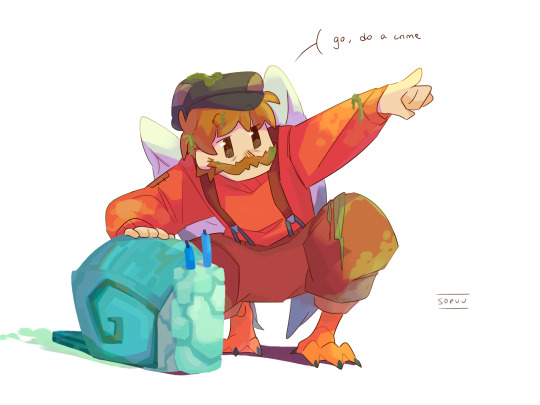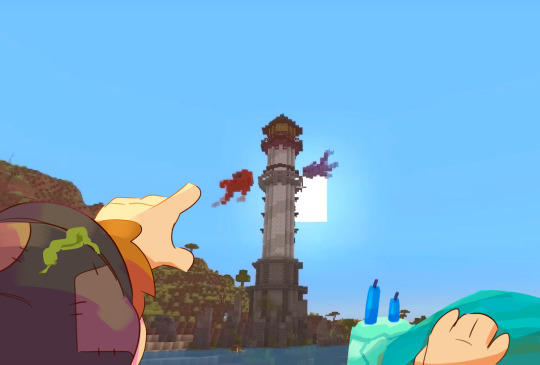#arce
Text
La naturaleza es tan bella 🥹
154 notes
·
View notes
Text

Arce y fresno
2 notes
·
View notes
Text
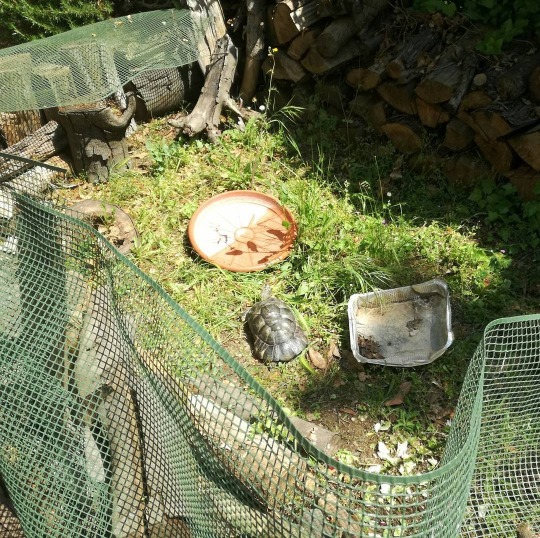
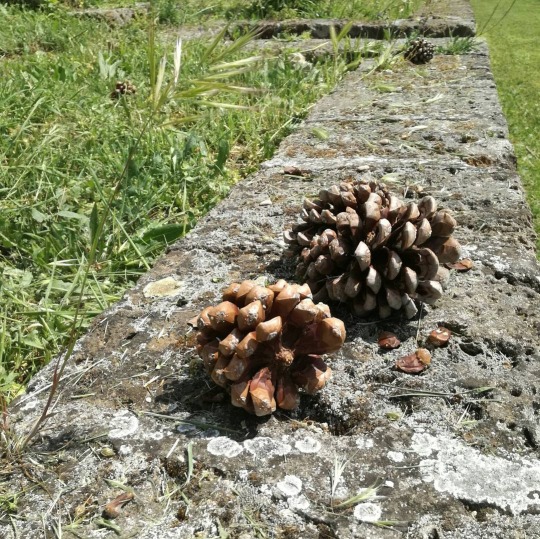
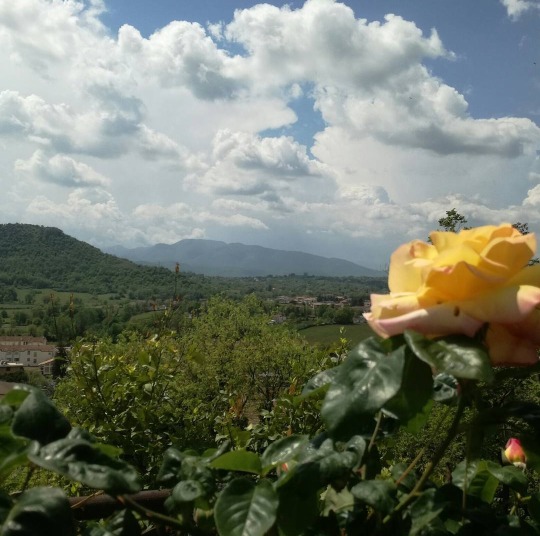






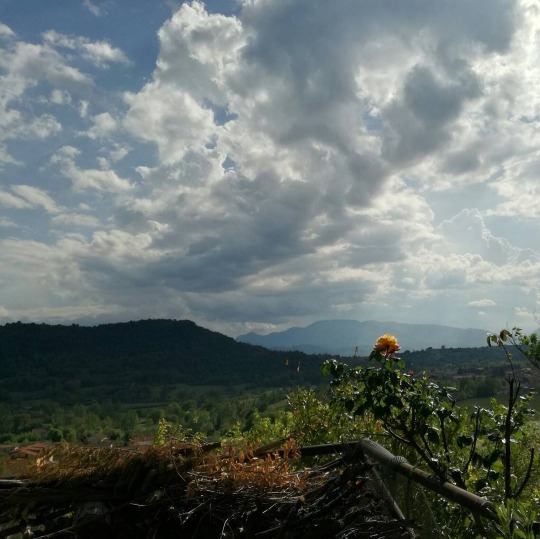
[16.04.2017]
-66
Beautiful days in the countryside!
2 notes
·
View notes
Text
Anthropogony
An interpretation of the history of humanity, as understood through the works of the enlightened, and most importantly, as given freely from Arke through gnosis, and as recorded as faithfully as possible by Her servant, with Her generous permission. May any inaccuracy be forgiven of me through Her mercy. Any errors present in this text fall upon Her servant, and none fall upon Her.
The genealogy of humankind begins with Khaos, as do all genealogies, for from Khaos, the First Principal, all else with the divine spark of life emanates, and from Khaos, all are given life. Before all emanations had begun, there was only Khaos, who pondered herself infinitely, and knew no others except for herself, and no nature existed which was not within Khaos. From Khaos’ pondering arose the next of the divine, the Primordial Gaia, from Khaos was also born Tartaros, and Eros, the endless abyss beneath the earth, and perfect love, for these were things which exist within Khaos. From Khaos was also born Erebus, and Nyx. From herself, Gaia crafted an equal, the heavens, Ouranos.
Now, Ouranos and Gaia were wed, and together, from their love, emanate the twelve who we call Titans, Okeanos, Coeus, Crius, Hyperion, Iapetos, Theia, Rhea, Themis, Mnemosyne, Phoebe, Tethys, and Cronos. Central to the history of humanity is Iapetos, and his wife Clymene, daughter of Okeanos and Tethys. Iapetos and Clymene together bore 4 sons, Atlas, Prometheus, Epimetheus, and Menitos. Of these sons, Prometheus and Epimetheus fashioned a race of Daemons, being incorruptible in nature, after the manner of the Titans, Primordials, and all other beings of aether.
Together with the Titans, this race of Daemons resided in peace and immortality, never growing old, nor lacking in anything which their hearts desired, for Cronos, Titan of the harvest, ensured that the fields were to ripen without toil, so that all who resided there might take freely what they needed, and the surplus was offered back to the Titans in thanks. Hyperion, the sun, did not harshly shine down upon them to burn or harm them, and did not cause blindness. Phobe, the moon, was luminous, and lustrous in her beauty, illuminating the night that none could become lost in the darkness. This is recalled by the poets as the Golden Age of Man, for the Daemons, who were to become the life of our world, were immortal, and never in want of anything.
Now, Cronos was not the first ruler of the cosmos after Khaos, rather, his father Ouranos presided before him. Of his children, the Titans were the only ones who he did not cast out of the realm of the incorruptible, for his other children, the Cyclopes, and the Hecatoncheires were cast out by Ouranos, who saw them as unclean and impure, and imprisoned them within the corporeal, to be mortals, and to have bodies which would decay, and be born again. During the Golden Age, the Cyclopes and the Hecatoncheires were still residing within the corruptible material world.
Zeus, the youngest son of Cronos, sought to overthrow his father, just as Cronos had overthrown his father before him. Zeus’ siblings were initially unable to come to his aid, for Cronos had swallowed them, absorbing their essence into his own, however Metis, a daughter of Okeanos, aided Zeus in providing a poison to Cronos, causing him to release the siblings of Zeus. Together, Zeus and his five siblings aid the Cyclopes in escaping their imprisonment, allowing them to return to the aetherial realm of incorruptibility, and in reward for this, they forged thunderbolts for Zeus, which he used as a weapon against the Titans.
Just as the Cyclopes aided Zeus, the race of Daemons fathered by Prometheus and Epimetheus aided Cronos, fighting by the sides of the Titans. During this war, as is important to the history of our people, Arke, daughter of Thaumas and Electra, and Sister to Iris, and the Harpies, fled from the encampment of the Olympians, and allied Herself with the Titans of Othyrs, serving as a messenger, thus also forging an alliance with the Daemons who were to become corporeal life. Prometheus and Epimetheus did not fight in this war.
After much fighting between the immortals, the war was at a stalemate, until Zeus, taking the advice of Metis, was able to aid the Hecatoncheires in their escape into the incorruptible aether, where in return, they served him in the war, and with their aid, Zeus was able to overcome Cronos, and his allies. Now, Zeus, in his victory, sought to punish the Titans and their allies for resisting his ascension to King of the cosmos. Zeus cast the Titan warriors into the pit of Tartaros. Zeus also deprived Arke of her wings, and cast her into the pit alongside her allies.
The Daemonic allies of the Titans, however, were not cast into Tartaros, but rather were sealed within the corporeal world, in the same manner of the Cyclopes and the Hecatoncheires before them, forced to inhabit clay bodies, forged for them by Hephaestus, son of Hera, and to toil the earth, and to hunt game to provide food for themselves. Remaining immortal, upon the final decay, and death of the body, the Daemons were to undergo metempsychosis, returning to a new body each time, and each time forgetting much of their past lives, and with most forgetting where they originated, or why they reside imprisoned within this realm.
Because Prometheus and Epimetheus did not take part in the conflict, they were spared imprisonment in Tartaros, however the brothers were saddened by the sight of their children residing in ignorance, unknowing of their own origins. Epimetheus, in an attempt to restore gnosis to the Daemons, taught humanity of their origins, while Prometheus taught humanity how to use this knowledge. For this attempt at allowing humanity to understand their imprisonment, Prometheus and Epimetheus were bound to rocks upon the earth, where birds ate their liver, only for it to grow back the next day, to be eaten again, a fate resembling that of the death and rebirth of their children. Zeus offered the brothers a chance to escape, through depriving humanity of the shards of gnosis which they had imparted upon them, however the two refused this offer, and remained imprisoned for many years, until they were freed by Herakles.
It was at this time that Arke, messenger of the Titans, and daughter of Thaumas, the wonders of the sea, and Elektra, an Oceanid of the amber clouds, had Her Naiad servants, who were cast with Her into Tartaros, forge for Her new wings, created out of the mist of the springs and rivers of Tartaros. She fled upwards with Her servants and attendants, as high up as She could reach, and in this crystalline cavernous space between the abyss of Tartaros, and the foundations of the world, Arke established for Herself a domain. The beautiful Naiads who came with Her set up wells, and springs, and filled the cavern with mist, and allowed for mosses and flowers to grow, and cool the air. The cavern became lush, and green, and shone radiantly with the beauty of Arke. Fine gems of blues, greens, and purples formed naturally among the plants, including amethyst, and so in this domain, She was free of both the chains of Tartaros, and the death and rebirth of the realm of the corporeal. Arke, free from the pits of Tartaros, and having wings once again, was now able to reach the minds of the Daemonic humans once more. She was able to achieve communication with the Daemonic souls of some humans, gradually informing them about their origins, and allowing them to become Her servants, that their souls may be brought to Her domain after the death of their bodies.
It is through this, that humanity may return ourselves to our Daemonic form, and be liberated from decay, that those who Arke may choose as servants, and those who may serve Arke, may be freed from their chains.
5 notes
·
View notes
Text

Anthony Fineran (B 1981), Pine Nuts Jacob Arce, 2023
2 notes
·
View notes
Photo

Meet Nana and Arce! My 2 fantasy rp characters!
Someone would say that dressing all your OCs in maid dresses is crazy. I’d say it is genius (?)
4 notes
·
View notes
Text
Víctor Rafael Meléndez Arce
(Victor Rafael Melendez Arce)
Lil BreeZy
Breezypr_
#lilbreezy#lilbreezypr#breezypr_#Víctor#Rafael#Meléndez#arce#melendez#victor Melendez#victorrmelendezarce#swag#blizz#Blizz récords#blizzrecords#Blizz Records
2 notes
·
View notes
Text
"redemption arcs are toxic, you shouldn't try to fix someone!"
actually it is so important to me that being in community and experiencing human connection can save people. thanks
100K notes
·
View notes
Text

Must be a Sugondese joke.
#dungeon meshi#chilchuck tims#laios touden#senshi#Looks like I won't be able to post this on dungeon meshi thursday so instead I will have a fun past/future conversation#This is wednesday me who has not seen the episode yet but I have such a strong feeling that it is going to be extremely special.#*This* fight is what the first arc has been building up to and it has *so* many incredible moments.#We're going to see the chilchuck knife throw! The leg sacrifice! The bones!#Watch them ramp up the quality this episode and go wild with the frantic action of 'oh god our plan is going to shit'.#Hello. Me of the future who just watched the episode.#I knew it was going to be good but that...that blew my mind completely. My high expectations were beyond met. My god.#I'm just speechless at how well they handled everything. The leg. The tension. That ENDING.#If you have not already: PLEASE watch Dungeon Meshi.
24K notes
·
View notes
Text

The second time I quilted Joan of Ark.
This one just got first place at the Utah State Fair
#becky’s quilting again#quilting as art#custom quilting#quilt art#fiber art#million little stitches#quilt#joan of arc
46K notes
·
View notes
Text
I need everyone’s best character advice. STAT.
#daily writing prompts#fiction#writing#writing practice#writing inspiration#words#character#character arcs
40K notes
·
View notes
Text
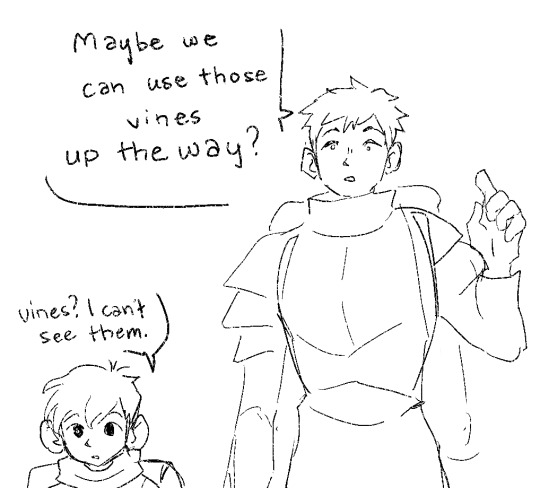
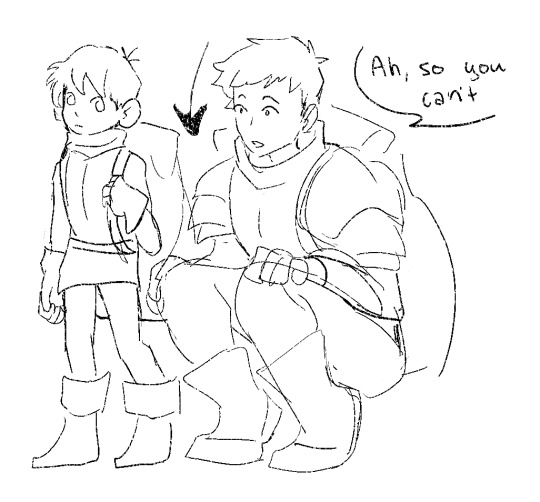

#dungeon meshi#chilchuck tims#laios touden#i have a tall friend who does this to me#cant hate her for something so fuckin funny tho#chilchucks villain arc
21K notes
·
View notes
Text
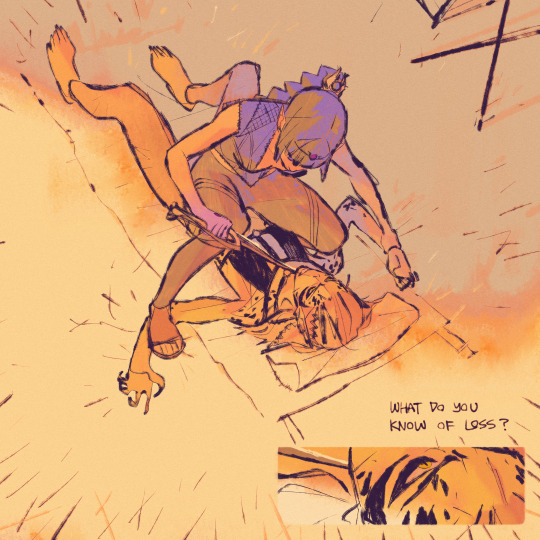







what do you know of loss?
no words for how much I adore these two characters and the ways their journeys parallel one another's... take this as part character study (what if they helped each other heal!) and part ship content (they were made for each other...) anyways. the shadowzel illness never stops
#baldurs gate 3#bg3#laezel#shadowheart#crying screaming sobbing#shadowzel#more like shartzel#lae'zel#character design#character art#digital illustration#character designer#comic#the way their character arcs are so beautiful to me#it's JOEVER!
15K notes
·
View notes
Text





4 notes
·
View notes
Text
Information regarding Arke
Historical information regarding Arke is slim, but what we do know from our historical sources shall be provided here:
Arke, also spelled Arce, a name meaning "Swift", is the daughter of Thaumas, and Electra. Thaumas is a sea god, and his name means "wonder", possibly implying him to be a god related to the wonderous aspects of the seas and ocean. Electra is an Oceanid, who's name means "amber".
Together, Thaumas and Electra had Iris, Arke, and the Harpies. During the Titanomachy (The war between the Titans and the Olympians) Arke's sister, Iris, served as a messenger of the Olympian gods. At some point during the Titanomachy, Arke fled from the Olympian camp, and joined the Titans (presumably on mount Othrys, the camp of the Titans) to serve as a messenger, thus becoming the Titan-allied counterpart of her sister. It is unknown what role, if any, she served prior to changing sides. It should be noted that the Titanomachia, an epic poem attributed to Eumelos, lists a (masculine) deity named Ithax as the messenger of the Titans, though Ithax is never mentioned outside of this poem.
The Titanomachy ended in the defeat of the Titans by the Olympians, resulting in the imprisonment of the Titans in Tartaros, the pit underneath the earth. While Arke herself is not classified as a Titan, her service to them resulted in her being sentenced to Tartaros alongside her allies. Both Iris and Arke had wings, and so to punish Arke, Zeus deprived her of her wings before casting her into Tartaros.
Arke's wings then changed possession. Zeus gifted them to Thetis as a wedding present for her marriage to Peleus. Thetis gifted these wings to her son Achilles, who was known as Podarkes, "Swift-footed" or "Arke-footed", due to having Arke's wings attached to his feet. It is unknown what happened to her wings after the death of Achilles.
No more is heard of Arke directly, however a lost play, "Prometheus Lyomenos", by Aeschylus (c. 525 BCE - c. 455 BCE), involves a chorus of Titans who have been freed from Tartaros. Some versions of Hesiod's Theogony also relate that Cronos was released from Tartaros by Zeus, and granted rulership of the Island of the Blessed, an afterlife for great heroes. Most versions of the text lack this detail, and it is considered to be a later addition, however Aeschylus' play, paired with these additions to the Theology, implies that there was a general conception of Titans being released from Tartaros, so that it was not totally absent as a historically valid idea. It stands to reason that in this tradition, Arke would be included in such a pardoning of the Titans. That being said, this is never explicitly stated, and is thus simply an interpretation based on the scant sources we possess.
Some modern sources suggest that Arke represented the faded secondary rainbow, sometimes seen behind the more brightly colored rainbow, which her sister Iris represents. While possible, this is never explicitly stated in historical sources. Due to the rare occurrences of Arke being mentioned directly, it is unlikely, though not impossible, that Arke was a subject of historical worship. Of course, despite the lack of evidence for a historical cult, this should not deter modern practitioners from her worship.
9 notes
·
View notes
